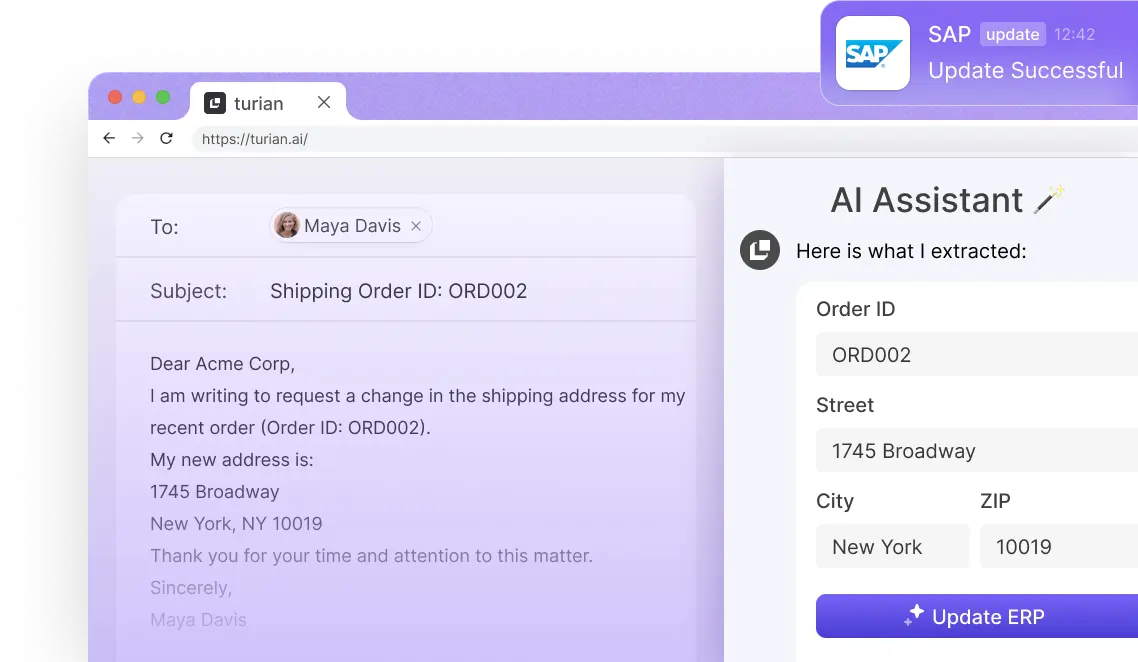

DIN EN 10204: Everything You Need To Know
Material certification plays an integral role in ensuring quality, compliance, and transparency in industries like manufacturing, engineering, and construction. It not only guarantees the quality of products and/or services but also provides customers with a sense of security and trust in the company. One of the most widely recognized standards for material certification is DIN EN 10204, which defines the requirements for inspection documents in accordance with European norms.
But what is DIN EN 10204 exactly? If you are unfamiliar with this standard or just want to learn more about it, this guide is for you. Here, we'll explain everything you need to know about DIN EN 10204, from what it is to its different certification types and what industries require it. We'll also share a step-by-step process on how companies can obtain it and maintain compliance.
What Is DIN EN 10204? The Basics

Source: Freepik
The DIN EN 10204 is a European standard that outlines the requirements for various types of inspection documents that must be supplied to the purchaser for the delivery of metallic products, like plates, sheets, forgings, and castings, regardless of their manufacturing process.
This standard can also apply to non-metallic products, but only when explicitly referenced in the product's technical requirements. This standard was first published in 1991, originating from the German standard DIN 50049, which was specifically created for steelmakers. However, to ensure harmonization across European markets, DIN 50049 was replaced by EN 10204 in 2004, which is the current internationally recognized version. The purpose of this standard is to ensure the reliability of materials and products, facilitate the free movement of quality-certified goods in global markets, and increase confidence in international trade. The documents required by the EN 10204 standard should contain information such as the quality management systems used in the process of production, the results of tests and inspections, and product specifications.
There are four different types of inspection documents covered in the standard, categorized into non-specific – Type 2.1 (Declaration of Compliance with the Order) and Type 2.2 (Test Report) – and specific inspection types – Type 3.1 and Type 3.2 (both are Inspection Certificates). These certificate types differ based on the level of inspection detail, test specificity, and third-party validation. We'll explore each type thoroughly in another section of this article.
DIN EN 10204 is a crucial standard that manufacturers must comply with to certify the quality of their products. It not only ensures that products meet specific standards of quality but also promotes cooperation and trust within the supply chain, which is essential in today's dynamic global market.
What Is The DIN EN 10204 Certificate?

Image source: Drazen Zigic
The DIN EN10204 certificate is an inspection document created in compliance with the DIN EN 10204 standard for quality assurance in the supply and manufacturing of materials. It serves as a way to verify material quality, primarily in industries that work with metals and alloys and, in some cases, non-metallic materials when explicitly required by product specifications. It ensures products meet specific technical requirements and gives buyers confidence in the quality. Under this standard, different types of inspection documents are issued, each containing varying levels of information and verification. These documents are provided to customers and may include details such as chemical composition, mechanical properties, traceability records, test results, and inspection findings, depending on the type of inspection document issued.
The DIN EN 10204 inspection document is used as proof of material or product quality. It plays a vital role in streamlining communication between companies, as it enhances transparency in material purchasing processes and helps avoid potential quality disputes or compliance errors. Moreover, DIN EN 10204 is recognized internationally, making it a valuable asset for companies looking to enhance their competitiveness globally. By providing a standardized approach to material verification, it helps businesses maintain trust, accountability, and consistency in global markets. As industries continue to prioritize traceability, compliance, and quality assurance, the role of the DIN EN 10204 inspection document is becoming more and more crucial.
DIN EN 10204 Certification Types
There are four different types of inspection documents that are covered under DIN EN 10204, categorized into non-specific and specific inspection. Let's discuss each of them in a bit more detail.
Non-Specific Inspection Documents
These documents provide test results based on representative samples from the production process, but they do not confirm compliance with the exact batch supplied.
DIN EN 10204 Type 2.1 Certificate
The DIN EN 10204 Type 2.1 certificate is a statement of compliance with the order issued by the manufacturer. This document states that the products supplied meet the customer's order requirements, but it does not include any accompanying test results. It is essentially a declaration of compliance from the manufacturer to the customer, stating that the products have been produced as per the agreed-upon specifications. However, this document is not subject to an independent audit process, meaning its level of reliability is limited. Since no test results are provided, this certificate does not offer material property verification—only a confirmation that the products comply with the order.
DIN EN 10204 Type 2.2 Certificate (Test Report)
The DIN EN 10204 type 2.2 certificate is similar to Type 2.1, as it also includes a statement of compliance, but it goes a step further and includes test results from non-specific inspection, providing additional assurance compared to Type 2.1. So, what is a non-specific inspection? Well, it means the test results are not from the exact batch supplied but rather from representative samples from the same production process. These tests are conducted based on the manufacturer's internal quality control procedures rather than on the specific batch being delivered. While Type 2.2 provides more confidence than Type 2.1, it is crucial to note that this certificate does not involve independent third-party verification. The test results are still provided by the manufacturer and are not subject to external validation. In industrial applications, some sectors may find Type 2.1 sufficient, while others require Type 2.2 to ensure additional quality assurance.
Specific Inspection Documents
These documents provide test results that are directly linked to the exact batch supplied, ensuring full traceability and compliance with order requirements.
DIN EN 10204 Type 3.1 Certificate
The DIN EN 10204 Type 3.1 is an inspection certificate that provides a higher level of material verification and traceability compared to Type 2.2. The certificate is issued by the manufacturer's authorized inspection representative, who is independent of the manufacturing department. This representative confirms that the products have been tested per the agreed-upon order specifications and applicable industry standards. The Type 3.1 certificate includes all identification and traceability information for the materials, as well as the results of all tests conducted. The German version of this certificate is known as Abnahmeprüfzeugnis 3.1.
DIN EN 10204 Type 3.2 Certificate
The DIN EN 10204 Type 3.2 certificate is the most comprehensive inspection document under the DIN EN 10204 standard. It includes all the information and test results covered in a Type 3.1 certificate but with an additional layer of verification by an independent third party. This means that in addition to the manufacturer's authorized inspection representative, a third-party inspector or the purchaser's authorized inspection representative must also:
- Verify the information contained in the certificate.
- Witness certain tests performed during the manufacturer's inspection process.
This type of inspection document offers the highest level of documented evidence of conformity and is essential for industries that require strict quality assurance, like aerospace and nuclear power plants. The third-party approval of this certificate provides greater transparency in the supply chain, reassuring customers that the materials meet the required standards. This enhances business reputation and ensures regulatory compliance.
Moreover, the DIN EN 10204 Type 3.2 certificate helps minimize legal risks, as regulatory authorities often require third-party verification to avoid compliance issues and penalties. The independent verification process builds trust and instills confidence in the quality of materials supplied, which in turn boosts business relationships and competitiveness in global markets.
Which Industries Require DIN EN 10204 Certification?

Image source: Aleksandarlittlewolf
Now, we have a better understanding of the different types of DIN EN 10204 certificates and their purposes. But why is this certification important, and which industries require it? While DIN EN 10204 certification is widely used, its necessity depends on specific industry requirements, customer specifications, and regulatory needs. Well, let's take a look at some of the most common industries that require DIN EN 10204 certification:
- Manufacturing: One of the main industries that need this certification is manufacturing. This includes industries that produce metal components and, in some cases, certain non-metallic materials when explicitly specified in product requirements. The certification is important because it ensures that the materials used in the production meet the required standards and technical specifications, thus ensuring quality control and regulatory compliance.
- Construction and Infrastructure: Another industry that requires DIN EN 10204 certification is construction and infrastructure. The certification is crucial in this industry as it provides evidence that the materials used in the construction of buildings, bridges, roads, and other structures comply with required technical standards, ensuring the integrity and reliability of structures.
- Automotive: The automotive sector is another vital industry that requires DIN EN 10204 certification. These inspection documents play a key role in ensuring the quality, safety, and reliability of metallic materials used in vehicle manufacturing. From structural components to engine parts, every metallic material must meet strict technical standards to guarantee performance and durability on the road. For this reason, companies in the automotive supply chain often pursue DIN EN 10204 inspection documents to ensure compliance and maintain their reputation for quality.
- Energy: In the energy industry, projects that demand high standards, like renewable energy systems (e.g., wind turbines) and oil and gas pipelines, require DIN EN 10204 certification. These documents are crucial in ensuring the reliability and safety of components used in energy production and distribution. They serve as proof that the materials used meet regulatory and technical standards, providing assurance to investors and consumers.
- Pharmaceuticals: The pharmaceutical industry is another sector that relies on DIN EN 10204 certification. All materials used in pharmaceutical production must meet strict safety and hygiene standards, especially when it involves metal components in storage tanks, piping systems, and production equipment. Since many of these materials come into direct contact with pharmaceutical products, they need to be corrosion-resistant, contaminant-free, and fully traceable. These inspection documents provide proof that the metallic materials meet regulatory and technical standards, helping pharmaceutical companies avoid contamination risks, maintain quality control, and comply with industry regulations.
How To Obtain a DIN EN 10204 Certificate?
Ok. Now we know which industries require DIN EN 10204 certification. But how can companies obtain this certification? Here are some key steps that companies should follow to obtain a DIN EN 10204 certificate:

1. Determine The Requirements and Certification Type
The first step is to determine the specific requirements for your project or industry and which DIN EN 10204 certificate type is needed. It is essential to understand the necessary chemical composition, mechanical properties, and other technical specifications for your materials and products. As said earlier, there are four types of inspection documents available (2.1, 2.2, 3.1, and 3.2), so make sure to select the correct type based on your needs and the level of assurance required. This step is the foundation of the certification process, so it's important to get it right.
2. Ensure Working with Certified Manufacturers
Now, this step is crucial, especially for industries that require strict quality control and regulatory compliance. It is essential to work with certified manufacturers and suppliers who have a proven track record of meeting DIN EN 10204 requirements. Also, make sure to verify their certifications and quality management systems to ensure that they can provide the necessary documentation for your project. Moreover, communicating your specific requirements and the type of inspection document you need is crucial to avoid any misunderstandings or delays in the certification process.
3. Conduct Material Testing and Documentation
After selecting a certified manufacturer, it's time to conduct the necessary material testing and documentation. Depending on the inspection document type, companies will either perform a nonspecific test or a specific test on the materials. It is crucial to maintain accurate records of all tests performed, including test results, equipment calibration, and personnel qualifications. Moreover, companies must ensure full traceability of materials from raw material sourcing to the finished product. This step ensures that the materials used meet the required standards and specifications.
4. Review and Validate the Certificate
Companies need to carefully review the certificate to ensure it contains all the required information and accurately reflects the test results and material specifications. It's also essential to check the authenticity of the document and verify that it is issued by an authorized representative. In the case of a Type 3.2 inspection document, companies must also validate the third-party verification conducted by an independent and accredited inspector. Once all these steps are completed, companies can provide their clients with a DIN EN 10204 certificate for their materials or products as proof of quality and compliance.
Simplify Your DIN EN 10204 Certification Process with turian
DIN EN 10204 certification is an essential aspect of ensuring quality and compliance in various industries. However, the process can be pretty complex and time-consuming if done manually. From identifying the right certificate type and extracting relevant data to verifying the information and communicating with suppliers, this process requires a lot of effort and attention to detail. If you're looking to simplify your DIN EN 10204 certification process, our AI solutions can help.
turian AI assistant is powered by the most advanced AI technology to automatically identify, extract, and verify information from various certification documents. Our AI solution can independently identify all critical certificates, like inspection documents, test reports, and declarations of conformity, that arrive in your inbox and categorize them for further processing. In just seconds, turian extracts vital information from certificates using the latest AI technology. Our LLM-backed solution can process all types of certificates, including those compliant with DIN EN 10204 or its international counterpart ISO 10474 – which is the international version of EN 10204, with minor differences in documentation wording and certification structure – and industry-specific standards like DIN EN 10168 for steel products. turian directly captures key data, such as measured values, material properties, and certificate numbers from the documents and then digitally formats them for easy access.
The biggest advantage of using turian AI solutions for your DIN EN 10204 certification process is automatic verification. Our AI compares the measured values from the certificates with standard and limit values stored in your ERP or supplier contract, ensuring that all specifications are met. If there are any deviations, turian notifies you immediately so that you can take necessary actions. Moreover, our turian’s solutions also automates communication with suppliers. If there are any missing data points or incomplete details, our AI system sends a precise email to your supplier and/or customers, requesting the required information. This not only saves you the effort of manual follow-ups but also keeps you updated at all times. If you want to see how turian can help simplify your DIN EN 10204 certification process, we offer a free proof of concept without any kind of obligation. With this PoC, you can experience the efficiency and effectiveness of our AI solution firsthand.
{{cta-block-blog}}

Say hi to your
AI Assistant!


Lernen Sie Ihren KI-Assistenten kennen!
.avif)
FAQ
The key difference between Type 3.1 and Type 3.2 certificates lies in the level of verification. A Type 3.1 certificate is issued and signed by the manufacturer’s authorized inspection representative, confirming that the material meets the required specifications based on specific tests conducted by the manufacturer. A Type 3.2 certificate, often called a Witness Testing or Third-Party Inspection Certificate, goes a step further. In addition to the manufacturer’s approval, it must also be verified by either an independent third-party inspector or the purchaser’s authorized representative. This provides greater assurance of material conformity, making Type 3.2 certificates essential for critical applications in industries like aerospace and energy.
DIN EN 10204 certification ensures that materials meet specified quality standards while maintaining full traceability in the supply chain. It provides detailed inspection documents outlining a product’s chemical composition, mechanical properties, and test results, enabling buyers to assess material suitability and minimize the risk of non-compliance. The certification includes different levels of inspection—ranging from self-declared compliance to independent third-party verification—ensuring greater confidence in material integrity. This is especially crucial in regulated industries like construction and medical devices. By standardizing quality documentation, it enhances transparency, risk mitigation, and communication across the supply chain.
No, DIN EN 10204 certificates are not legally required, but they are often necessary in practice. Many industries, including construction, aerospace, and energy, rely on them to verify material quality and compliance with project requirements. While companies are not legally obligated to obtain them, customers frequently demand these certificates to ensure materials meet specific technical and regulatory standards. In high-reliability sectors like renewable energy, these certificates play a key role in verifying the integrity of critical components like wind turbine parts or solar panels. In short, while not mandatory, DIN EN 10204 certificates are highly recommended for companies looking to provide evidence of quality and compliance to their clients.
Yes, DIN EN 10204 certificates are internationally recognized and widely used in global trade to verify the quality and properties of metallic products. While originally a European standard, it is accepted in industries around the world. So, if your company operates on a global scale, DIN EN 10204 certificates can serve as proof of quality and compliance for your materials in various markets.





